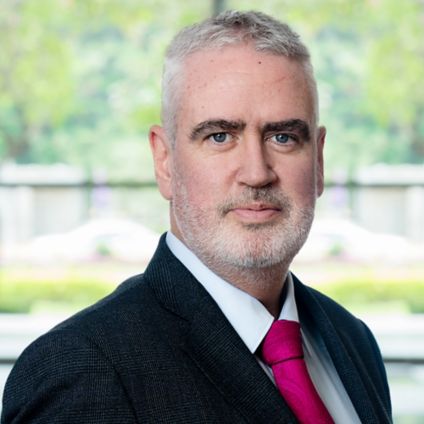Home › Insights › KPMG IMPACT › Climate change and the people factor
C-suite executives and board directors have set ambitious net zero targets, but translating ambition to action will need investment in human capital.
Climate change is expected to affect every facet of the global economy and the transition to a low-carbon economy will likely result in substantial changes in the way companies do business. Those fluctuations will likely impact employees and disrupt labor markets, whose effects could ripple through the communities where they live. The wholescale transformation of business models in the timescales we are facing will likely require much more than just the right skills and expertise. Every employee has a role to play in the transition to net zero.
The latest survey report by Eversheds Sutherland and KPMG explores how employees are factored into companies’ decarbonization plan. Drawing on the perspectives of 1,095 global leaders and interviews with leading voices on climate change, the results indicate a potential gap between their net zero goals and the strategies and talent in place to achieve them.
Several important themes emerged from the survey and interviews
Have a clearly defined decarbonization plan in place.
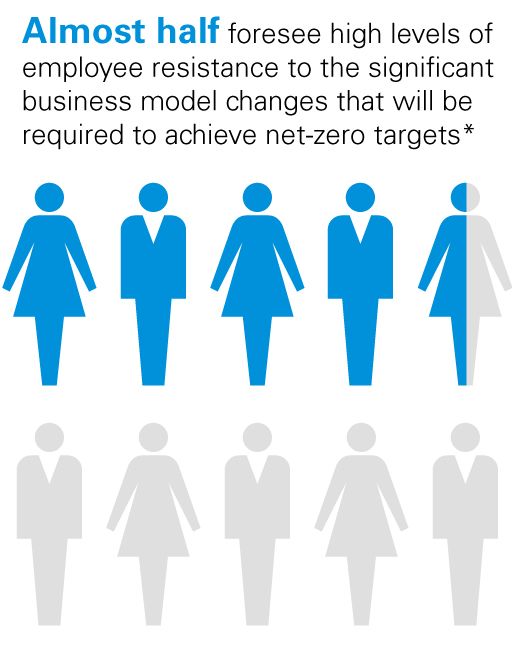
Believe they have the climate knowledge, resources, skills, and expertise to develop and deliver on their current decarbonization plans
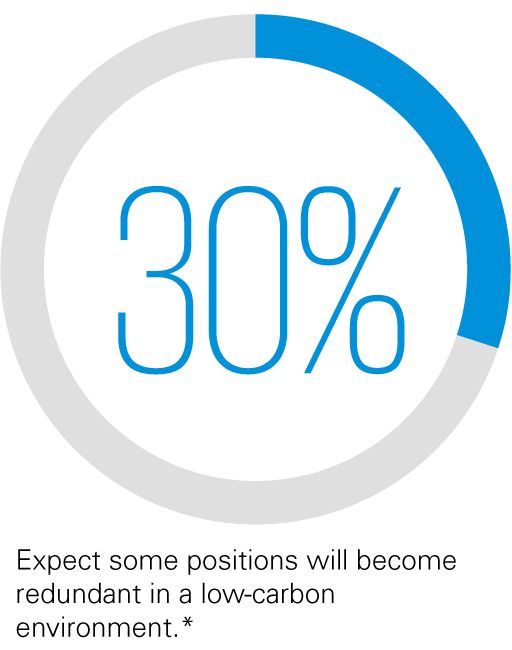
Feel accountable for climate-related impacts on environment and communities where their company operates.
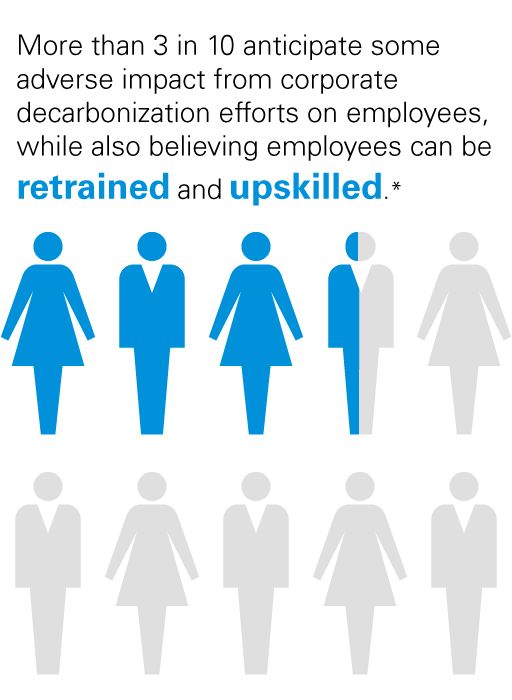
* Source: 2021 Eversheds Sutherland and KPMG Climate Change and the people factor
The findings demonstrate that human capital plays an important and complex role in the decarbonization story for companies.
Having sufficient capital, the right policy environment, and the right technology solutions are not enough to effectively fight against climate change. For all the various climate commitments corporations have made, they will find it challenging – if not impossible – to reach their goals without taking human capital action properly into account.
With the right incentives and resources, individuals have the power to help their companies achieve net zero and contribute to the global effort to fight climate impact.
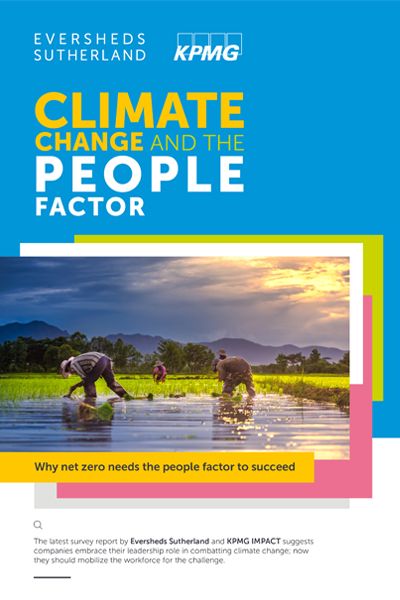
Climate Change and The People Factor
Why net zero needs the people factor to succeed
Explore the findings
Inside the mind of business leaders
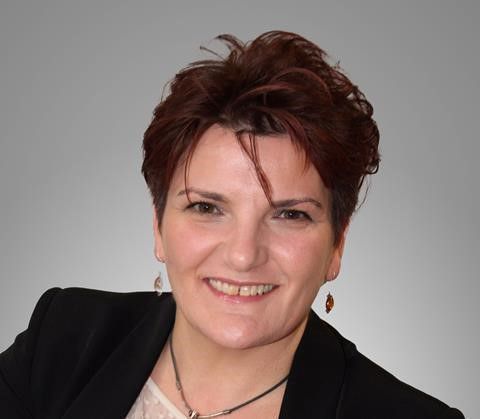
“There aren’t really ‘green’ skills. New energy infrastructure, to enable zero carbon such as nuclear and carbon capture and stroage will still need electricians and mechanical engineers, but these roles will be more digitally enabled”
Vicky joined international engineering and construction company Laing O’Rourke as its first-ever group head of sustainability in June 2021. She leads a newly created, dedicated sustainability function and is responsible for the implementation of detailed road maps to deliver Laing O’Rourke’s ambitious sustainability targets in the company’s operating hubs in Europe and Australia. Previously, Vicky was head of sustainable business at Drax Group where she was responsible for developing its climate ambition, social strategy, and community and charity policies. She also has held senior sustainability roles across the UK, Europe, United States and Asia at Tate & Lyle and Rolls-Royce.
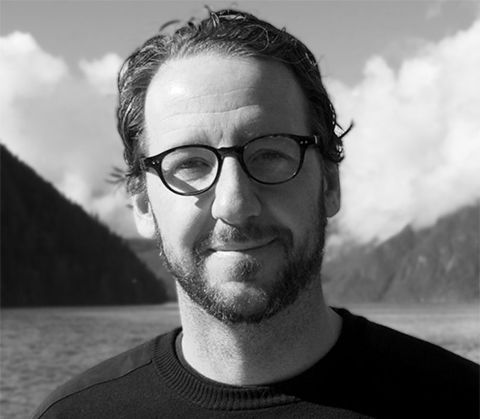
“Whether you're an investor or a global corporate, how you change your approach to business, how you manage your supply chain, how you make calls on large investments... all of these things need to have a climate prism. And if they don't, then you are putting your business at risk.”
With experience in public policy and geopolitics, Gerald has deep expertise on climate change, trade, energy, sustainable finance, and artificial intelligence. He has successfully led Canadian and global organizations in the public and private sectors for 20 years, including as the principal secretary to Canadian Prime Minister Justin Trudeau from 2015–2019 during which the country negotiated the Paris climate accord and created its first national climate change plan. Gerald also leads New Climate Group, a private consultancy advising global financial firms, educational institutions, and philanthropists on strategic investments in climate mitigation and resilience, and artificial intelligence.
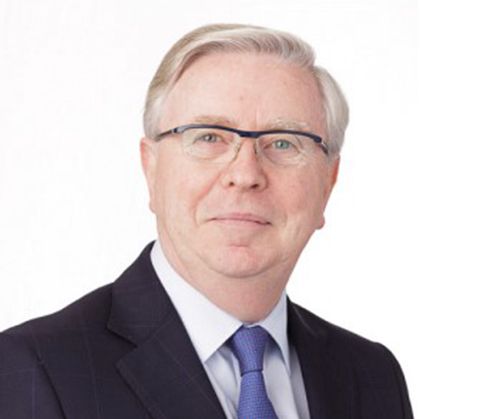
“Transparency in reporting is important to help ensure you are not falsely projecting some kind of greenwashing image just for your brand. Doing something verbally is not enough. Developing the KPIs and measurement systems, reporting it back to your employees, the market, to stakeholders, to the people in your supply chain, should all be part of the fabric of your response.”
Pat served as president of the European Parliament from January 2002 until July 2004 and was known for his efforts to expand the European Union, for which he was awarded the Aachen International Charlemagne Prize. Before completing his tenure, he represented the European Parliament at the Intergovernmental Conference leading to the adoption of the proposed new Constitutional Treaty of the European Union. Pat is the president of the Jean Monnet Foundation for Europe and has served on several advisory committees, including former membership on the Supervisory Board of Michelin.
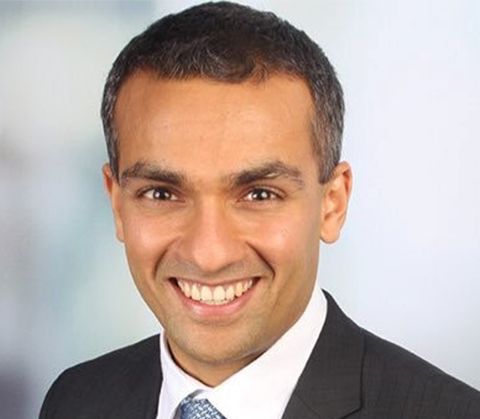
“The technical skills required to help our industry navigate the transition are not in short supply, because these are similar to those that we’ve always recruited for. Perhaps better trained in climate science than previously, but we have always needed hydrologists and geologists for example.”
Rohitesh, appointed CEO of ICMM in April 2021, is experienced in sustainability, resources, and geopolitics. Prior roles include managing director for energy, climate and resources at Eurasia Group, and global head of sustainability for the mining sector at KPMG International. He also advises the UK government’s Partnering for Accelerated Climate Transitions (PACT) program and was named one of South Africa’s climate change leaders for his work with the country’s mining industry. Rohitesh is a fellow at the Africa Leadership Initiative and the Asian Forum on Global Governance, and a member of the Advisory Board of Concordia.
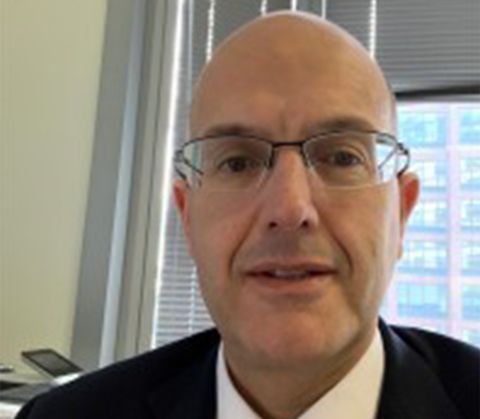
“There aren’t enough skills in the market right now, but the focus has to be on training and development in academia, as well as in firms like us training our own people. This is why we’ve partnered with academic organizations on a series of bank-wide training sessions.”
Jason has spent his entire career in risk and finance. Prior to becoming head of enterprise risk management at Standard Charted, he spent 21 years at Credit Suisse, most recently as head of enterprise, operational and liquidity risk management. Jason also had served as Europe CFO, head of group capital management, and head of risk analytics and reporting, among other responsibilities. Previously, he spent a decade at PricewaterhouseCoopers in financial services audit and business advisory.
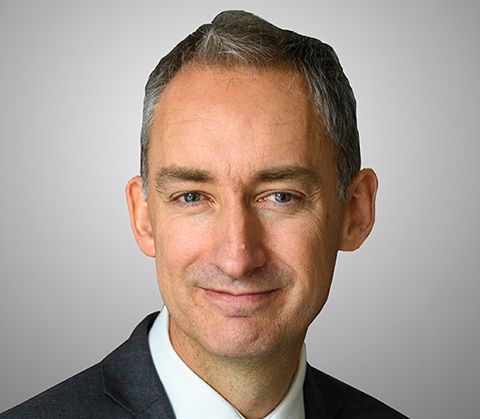
“We've always strived to be a good neighbor, so we've always been quite plugged into our communities. I think that has always been and will continue to be a key part of who we are. But whether it's climate change, whether it's plastic circularity, these issues don't get solved by one company or one part of the industry alone. We’re collaborating up and down the value chain trying to bring solutions.”
Jim, a 30-year veteran of LyondellBasell, leads R&D, technology and sustainability for the plastics, chemicals, and refining company. Previously, he held a variety of positions including leading the technology and international O&P business. Jim is the chairman of the executive committee of the World Plastics Council, an organization representing the global plastics industry focused on international issues such as resource management, sustainability, and marine litter.
Get in touch
Climate change presents complex problems that require collaboration and systemic action across geographies, sectors, and generations. KPMG firms are ready to help you tackle these problems and realize a sustainable and responsible future, together.
Connect with us
- Find office locations kpmg.findOfficeLocations
- kpmg.emailUs
- Social media @ KPMG kpmg.socialMedia
Further reading
- KPMG 2021 CEO Outlook
- Climate change and corporate value: What companies really think
- Unleashing the positive in net zero
- Boardroom climate competence: Getting ahead of the curve
- It's time to decarbonize the technology industry
- Sharpening the board’s oversight of human capital management
- The board's role in culture and employee engagement
- The Future of HR in the New Reality
